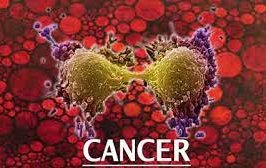Tanzania is witnessing a worrying rise in cancer cases, with over 16,500 new diagnoses recorded between 2019 and 2023. The Kilimanjaro region has emerged as the hardest hit, accounting for 37 percent of the reported cases, highlighting both the growing public health challenge and the urgent need for strengthened cancer prevention and treatment services.
Prostate cancer among men and cervical cancer among women are the most common types, reflecting broader trends in the region. Health experts point out that limited awareness, late diagnosis, and inadequate access to healthcare facilities contribute significantly to the high incidence and mortality rates. “Early detection and screening are crucial,” said specialists, emphasizing the importance of national campaigns to educate the public about symptoms and risk factors.
The Tanzanian Ministry of Health, in collaboration with regional health authorities, has been scaling up cancer care initiatives, including establishing more oncology units, improving diagnostic services, and training healthcare personnel in cancer management. Despite these efforts, significant gaps remain, particularly in rural areas where access to specialized treatment is limited.
Authorities also highlighted the role of lifestyle factors, genetics, and environmental influences in the rising numbers. With Kilimanjaro as the epicenter, regional health officials are exploring targeted interventions, such as mobile screening units and community health education programs, to reach underserved populations.
Health professionals urge Tanzanians to seek regular medical checkups, adopt healthier lifestyles, and participate in screening programs. They warn that without enhanced awareness, early detection, and expanded healthcare infrastructure, the burden of cancer is likely to continue growing, threatening the well-being of families and straining the healthcare system.
The current trends underline the need for a coordinated national strategy, integrating prevention, early detection, treatment, and palliative care, to reduce cancer-related deaths and improve the quality of life for patients across Tanzania.
